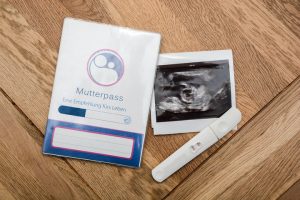
The idea that a fetus “thinks” in the womb fascinates and preoccupies scientists, philosophers, and expectant parents alike. But what does ‘thinking’ actually mean in this context? And what does modern research know about what goes on in the mind of an unborn child?
What Does “Thinking” Mean in Early Life?
In common parlance, thinking is understood to be the ability to consciously process information—thoughts, ideas, memories, and decisions. But in the womb, mature consciousness in this sense does not yet exist. Instead, neuroscientists speak of sensory perception, learning processes, and memory formation—the building blocks of thinking as we experience it later in life.
Brain Development in the Womb

Brain development begins as early as the third week of pregnancy. From the second trimester (around the 13th week), increasingly complex neural structures begin to form:
- From the 24th week onwards, important areas such as the thalamus – the gateway to sensory perception – become functional.
- In the third trimester (from around the 28th week), the first electrical brain activities that correlate with sleep cycles and stimulus processing become measurable.
- Towards the end of pregnancy, fetuses show reactions to voices, music, and light – indications that they can absorb and process information from their environment.
Perception and “Proto-cognitive” Experience
Although fetuses do not “think” in the classical sense, studies show that they perceive and respond to an astonishing amount of information:
- Hearing: From the 25th week onwards, the fetus can hear sounds from its surroundings, especially its mother’s voice. Repeated stimuli lead to habituation, an early learning process: the fetus “learns” that a sound is harmless and reacts less to it.
- Taste: The fetus absorbs flavors through the amniotic fluid—e.g., from the mother’s food—and later prefers familiar tastes.
- Memory: Studies with newborns show that babies recognize certain melodies or speech patterns from their time in the womb. The brain therefore begins to form memory traces at an early stage.
These processes suggest that the fetus has a kind of precognitive experience – a precursor to what is later considered “thinking.”
Does the Fetus Experience Feelings?
The question of feelings in the womb is also controversially discussed. Although the anatomical basis for simple emotions such as stress or calmness is present (e.g., through the autonomic nervous system and hormonal reactions), complex emotions such as fear, joy, or sadness require self-awareness – which presumably only develops after birth.
A Glimpse Into a Strange World
The fetus lives in a protected, warm, rhythmic environment – characterized by the heartbeat, breathing sounds, and the mother’s voice. This environment has a significant influence on early brain development. Even though the fetus does not yet think like a child or adult, it gathers experiences, forms initial neural patterns, and begins to “feel” the world.
Conclusion: Thinking Begins Earlier than we Long Believed – but Differently than We Know it
The fetus in the womb does not think in the true sense of the word – but it perceives, learns, and remembers. These early experiences lay the foundations for later thinking, feeling, and consciousness. The question of when exactly thinking begins remains a philosophical and scientific challenge – but every new insight brings us a step closer to the fascinating reality of prenatal life.


